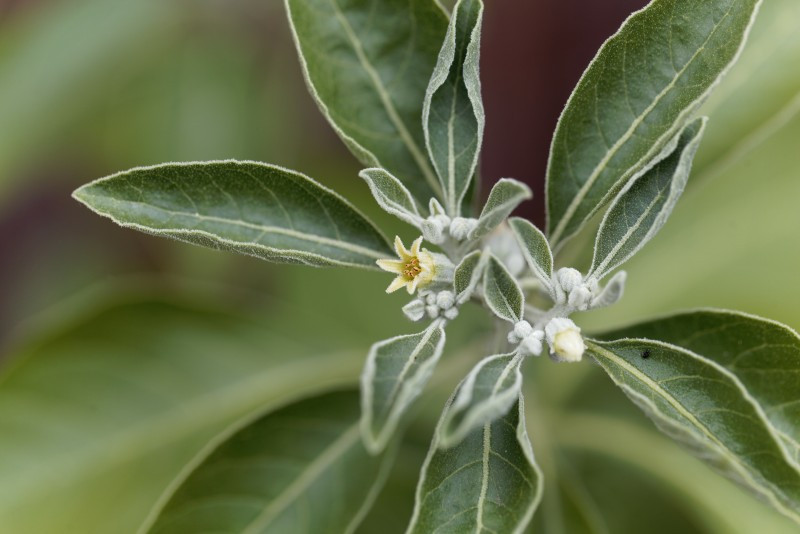Ashwagandha is an herb with an exceptionally long history of traditional use in Eastern countries. It also has a reputation for providing health benefits in the context of modern holistic medicine.
The Background on Ashwagandha
Ashwagandha is a small shrub with yellow flowers that is
native to India and Africa, and it has a history as an herbal remedy that dates back more than 3,000 years old. The roots of Ashwagandha were long known in India for bestowing on users a variety of nourishing, soothing, and strengthening health effects. Ashwagandha is also known as Indian ginseng.
There are a few different historical uses that ashwagandha fulfilled in Eastern medicinal traditions. Ashwagandha has long been presented on a regular basis to promote good health, and to
ease the effects of aging. It was also given to both children and adults during recovery from sickness to promote physical healing.
Both the historical and modern applications of ashwagandha are rooted in its dual ability to
rejuvenate the body and relieve stress. Thanks to modern medicine, it has in recent years been shown that ashwagandha works as a healing agent in the body by reducing inflammation and regulating neurotransmitters, among other benefits.
Modern Uses of Ashwagandha
Ashwagandha has a variety of uses as a remedy, many of which are supported by scientific evidence. It is recommended that you speak to your healthcare provider before taking an ashwagandha supplement for the first time.
Anti-inflammatory: Ashwagandha can help relieve inflammation that occurs in a variety of diseases. Ashwagandha can do this because it is an immunomodulator, meaning that it can alter immune function by
regulating inflammatory cytokines. Scientific research has shown this effect to be useful for individuals with rheumatoid arthritis as well as those with other inflammatory conditions.
Reducing stress and anxiety: Ashwagandha has been shown to
reduce cortisol, producing a lessening of stress levels. It can also contribute to a reduction in anxiety. One study showed that ashwagandha's anxiety-reducing effect is comparable to that of lorazepam, a common anxiety medication.
Sleep: The relaxing effects of ashwagandha can help promote sleep, which could be especially helpful for insomniacs. Studies have shown that ashwagandha can
improve sleep quality and sleep onset latency in individuals with insomnia and anxiety. This effect is most evident when Ashwagandha is taken on a regular basis due to its adaptogenic effect.
Heart health: Ashwagandha has the potential to improve your body's health in ways that reduce the chances of heart disease. Ashwagandha could help
reduce blood pressure as well as lower high cholesterol. At least one study has shown evidence of this, but more studies are necessary to conclusively prove these benefits.
Memory Support: Several studies have shown that ashwagandha can help slow or even prevent the loss of brain function in persons with Alzheimer's disease, as long as it is taken in
the early stages of the disease.
Male fertility: Ashwagandha could help
improve testosterone levels in men. This will conceivably help support a man's fertility, reproductive health, and stamina.
Ashwagandha is an herb with the ability to promote relaxation and overall bodily homeostasis. The uses of ashwagandha apply to a wide variety of health situations affecting people's quality of life. If you believe ashwagandha can benefit you or your family members, talk to your healthcare provider about trying an ashwagandha supplement.

